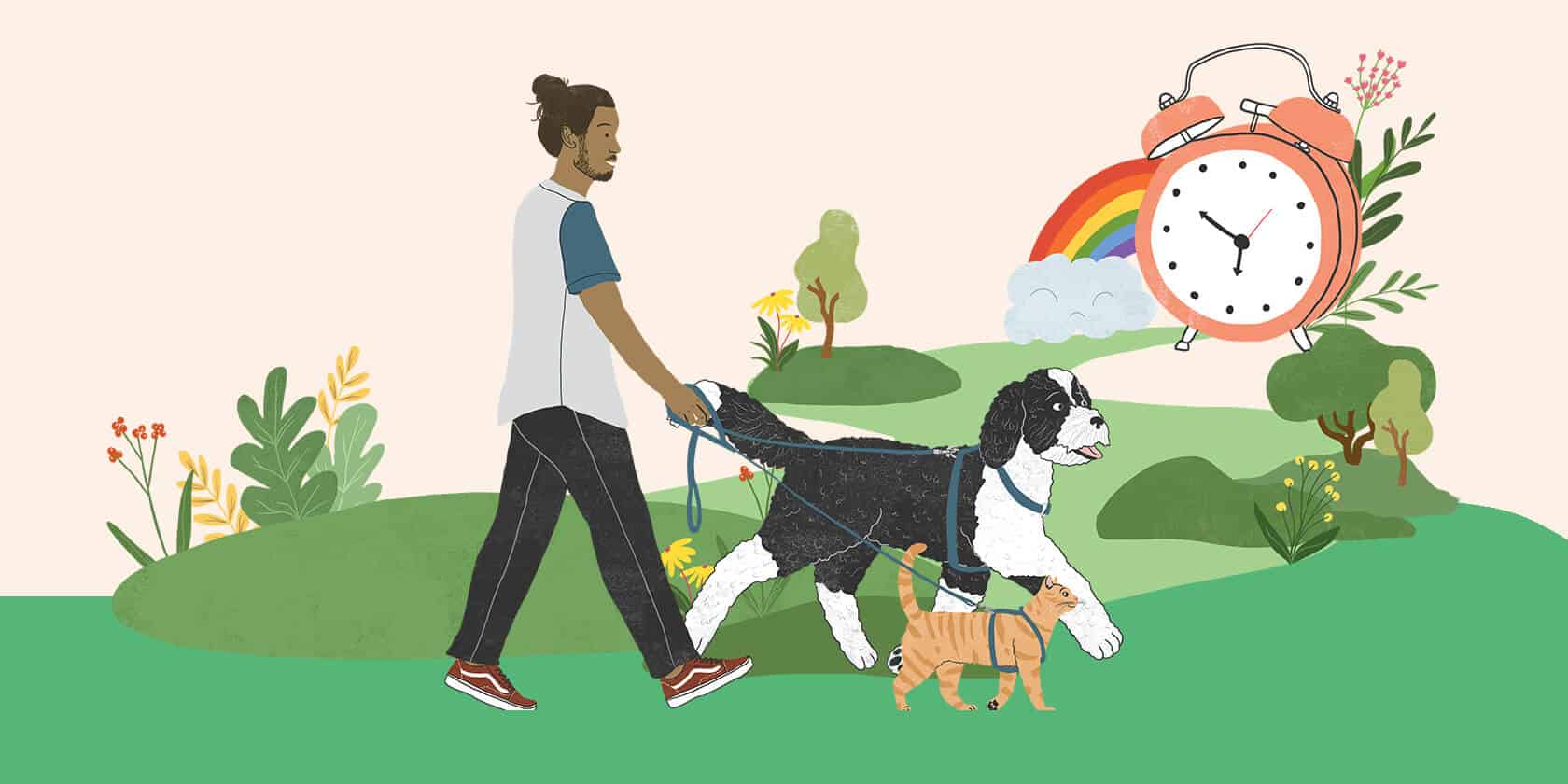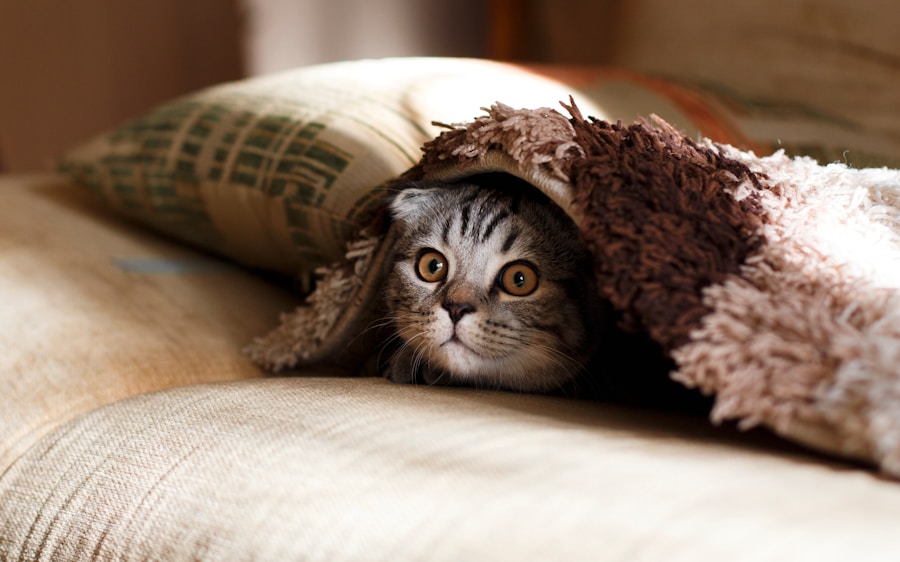Routine matters in pet training because it establishes consistency, reinforces expectations, and provides a sense of security, enabling pets to learn and thrive.
The Importance of Establishing a Routine for Your Furry Friend
Pets are an important part of our lives, and as pet owners, it is our responsibility to ensure their well-being and happiness. One way to achieve this is by establishing a routine for our furry friends. Just like humans, pets thrive on routine and structure. It provides them with a sense of security and predictability, which can greatly benefit their overall health and well-being.
Benefits of Establishing a Routine for Your Furry Friend
1. Reduced stress and anxiety: Pets can experience stress and anxiety when their environment is unpredictable or when there are sudden changes in their routine. By establishing a consistent daily schedule, you can help reduce their stress levels and provide them with a sense of stability.
2. Improved behavior: Routine can have a positive impact on your pet’s behavior. When they know what to expect and when to expect it, they are less likely to engage in destructive or attention-seeking behaviors. A consistent routine can help them feel more secure and confident, leading to better behavior overall.
3. Better sleep patterns: Just like humans, pets need adequate rest and sleep to stay healthy. By establishing a routine that includes regular bedtimes and wake-up times, you can help regulate your pet’s sleep patterns. This can result in better quality sleep, which is essential for their overall health and well-being.
4. Enhanced overall health and well-being: A routine that includes regular exercise, consistent feeding schedules, and adequate rest can greatly improve your pet’s overall health and well-being. Regular exercise helps maintain a healthy weight, promotes cardiovascular health, and stimulates mental stimulation.
Consistent feeding schedules ensure that your pet receives the proper nutrition at the right times, reducing the risk of obesity and digestive issues. Adequate rest allows their bodies to recharge and recover, supporting their immune system and preventing fatigue.
How Routine Can Help Improve Your Pet’s Health and Well-Being
1. Regular exercise and playtime: Incorporating regular exercise and playtime into your pet’s routine is crucial for their physical and mental well-being. Exercise helps maintain a healthy weight, strengthens muscles and bones, and promotes cardiovascular health. Playtime provides mental stimulation, relieves boredom, and strengthens the bond between you and your pet.
2. Consistent feeding schedule: Establishing a consistent feeding schedule is important for your pet’s digestive health. It helps regulate their metabolism, prevents overeating or undereating, and reduces the risk of digestive issues. Additionally, a consistent feeding schedule can help with potty training, as it establishes regular bathroom habits.
3. Adequate rest and sleep: Just like humans, pets need adequate rest and sleep to stay healthy. Establishing a routine that includes regular bedtimes and wake-up times can help regulate your pet’s sleep patterns. This ensures that they get enough restorative sleep, which is essential for their overall health and well-being.
4. Reduced risk of health issues: A consistent routine can help reduce the risk of various health issues in pets. Regular exercise helps maintain a healthy weight, reducing the risk of obesity-related conditions such as diabetes and joint problems. Consistent feeding schedules prevent overeating or undereating, reducing the risk of digestive issues. Adequate rest allows their bodies to recharge and recover, supporting their immune system and preventing fatigue.
Creating a Daily Schedule for Your Pet: Tips and Tricks
1. Identifying your pet’s needs: Every pet is unique, so it’s important to identify their specific needs when creating a daily schedule. Consider factors such as their age, breed, size, energy level, and any specific health conditions they may have. This will help you determine how much exercise they need, how often they should be fed, and how much rest they require.
2. Setting a consistent schedule: Once you have identified your pet’s needs, it’s important to set a consistent schedule that you can stick to. This means feeding them at the same times each day, taking them for walks or playtime at regular intervals, and ensuring they have a designated sleep area where they can rest undisturbed.
3. Incorporating playtime and exercise: Playtime and exercise are essential for your pet’s physical and mental well-being. Make sure to incorporate regular play sessions and exercise into their daily routine. This can include activities such as walks, runs, fetch, or interactive toys that stimulate their mind and keep them engaged.
4. Sticking to the routine: Consistency is key when it comes to establishing a routine for your pet. Stick to the schedule you have set as closely as possible, even on weekends or during busy periods. This will help your pet feel secure and confident, knowing what to expect each day.
The Role of Consistency in Maintaining a Routine for Your Pet
1. Importance of consistency: Consistency is crucial when it comes to maintaining a routine for your pet. Pets thrive on predictability and structure, so it’s important to stick to the schedule you have established. This helps them feel secure and reduces stress and anxiety.
2. How to maintain a routine: To maintain a routine, it’s important to be consistent with feeding times, exercise sessions, and rest periods. Stick to the schedule you have set as closely as possible, even during busy periods or when there are disruptions in your daily routine.
3. Dealing with disruptions: While it’s important to maintain consistency, there may be times when disruptions occur in your pet’s routine. This could be due to travel, changes in your work schedule, or unexpected events. When disruptions occur, try to minimize the impact on your pet by maintaining their feeding schedule as much as possible and ensuring they still receive regular exercise and rest.
How to Introduce a New Routine to Your Pet
1. Gradual changes: When introducing a new routine to your pet, it’s important to make changes gradually. Sudden changes can be stressful and confusing for your pet. Start by making small adjustments to their schedule and gradually increase or decrease the time spent on certain activities.
2. Positive reinforcement: Positive reinforcement is a powerful tool when it comes to training and establishing a routine for your pet. Reward them with treats, praise, or playtime when they follow the new routine. This will help them associate the routine with positive experiences and encourage them to continue following it.
3. Patience and persistence: Introducing a new routine to your pet may take time and patience. Be consistent with the new schedule and give your pet time to adjust. It’s normal for there to be some resistance or confusion initially, but with patience and persistence, your pet will eventually adapt to the new routine.
The Importance of Regular Exercise in Your Pet’s Routine
1. Benefits of exercise: Regular exercise is essential for your pet’s physical and mental well-being. It helps maintain a healthy weight, promotes cardiovascular health, strengthens muscles and bones, and stimulates mental stimulation. Exercise also provides an outlet for excess energy, reducing the risk of destructive or attention-seeking behaviors.
2. Types of exercise for pets: The type of exercise your pet needs will depend on their age, breed, size, and energy level. Some pets may require more vigorous exercise, such as running or playing fetch, while others may benefit from low-impact activities such as swimming or gentle walks.
3. Incorporating exercise into your pet’s routine: Make sure to incorporate regular exercise into your pet’s daily routine. This can include activities such as walks, runs, play sessions, or interactive toys that stimulate their mind and keep them engaged. Aim for at least 30 minutes to an hour of exercise each day, depending on your pet’s needs.
Feeding Your Pet on a Schedule: Why It Matters
1. Benefits of a consistent feeding schedule: Feeding your pet on a consistent schedule has several benefits. It helps regulate their metabolism, prevents overeating or undereating, and reduces the risk of digestive issues. A consistent feeding schedule also helps with potty training, as it establishes regular bathroom habits.
2. How to establish a feeding routine: To establish a feeding routine, feed your pet at the same times each day. Choose a quiet and calm area where they can eat undisturbed. Measure out the appropriate portion of food for their size and age, and avoid leaving food out all day as this can lead to overeating.
3. Choosing the right food for your pet: The type of food you choose for your pet is also important for their overall health and well-being. Consult with your veterinarian to determine the best diet for your pet based on their age, breed, size, and any specific health conditions they may have. Choose high-quality pet food that is nutritionally balanced and free from artificial additives or fillers.
The Connection Between Routine and Behavioral Issues in Pets
1. How routine can prevent behavioral issues: Routine plays a crucial role in preventing behavioral issues in pets. When pets have a consistent daily schedule, they are less likely to engage in destructive or attention-seeking behaviors. Routine provides them with structure and predictability, which helps reduce stress and anxiety.
2. Addressing existing behavioral issues with routine: If your pet already has behavioral issues, establishing a routine can help address and manage these issues. A consistent schedule can provide them with a sense of security and stability, which can help reduce stress and anxiety. Additionally, incorporating regular exercise and mental stimulation into their routine can help redirect their energy and prevent boredom-related behaviors.
3. Seeking professional help if needed: If your pet’s behavioral issues persist or worsen despite establishing a routine, it may be necessary to seek professional help from a veterinarian or animal behaviorist. They can provide guidance and support in addressing and managing your pet’s behavioral issues.
How to Adjust Your Pet’s Routine for Changes in Your Schedule
1. Planning ahead for changes: When changes in your schedule are inevitable, it’s important to plan ahead and make adjustments to your pet’s routine. Consider how the changes will impact their feeding schedule, exercise routine, and rest periods. Make a plan to ensure that their needs are still met despite the changes.
2. Gradual adjustments: When making adjustments to your pet’s routine, do so gradually. Sudden changes can be stressful and confusing for your pet. Start by making small adjustments and gradually increase or decrease the time spent on certain activities.
3. Maintaining consistency: Despite changes in your schedule, it’s important to maintain consistency as much as possible. Stick to the new schedule you have established and ensure that your pet still receives regular exercise, consistent feeding times, and adequate rest.
The Positive Impact of a Consistent Routine on Your Furry Friend’s Life
Establishing and maintaining a routine for your pet can have a profound positive impact on their overall health and well-being. Routine provides them with a sense of security and predictability, reducing stress and anxiety. It improves their behavior, sleep patterns, and overall health. By incorporating regular exercise, consistent feeding schedules, and adequate rest into their routine, you can help ensure that your furry friend lives a happy and healthy life.
As responsible pet owners, it is our duty to provide our pets with the care they need. Establishing a routine is one way we can fulfill this responsibility. By understanding the significance of routine for pets and the benefits it can bring, we can create a daily schedule that meets our pet’s needs and enhances their overall well-being. So, let’s make a commitment to establish and maintain a routine for our furry friends, and watch as they thrive and flourish under the structure and predictability it provides.
Johny is a dedicated pet enthusiast, author, and the driving force behind the insightful content at PetSWAT. With a deep passion for animals and a wealth of knowledge acquired through years of experience, Johny brings a unique perspective to the world of pet care and companionship.




